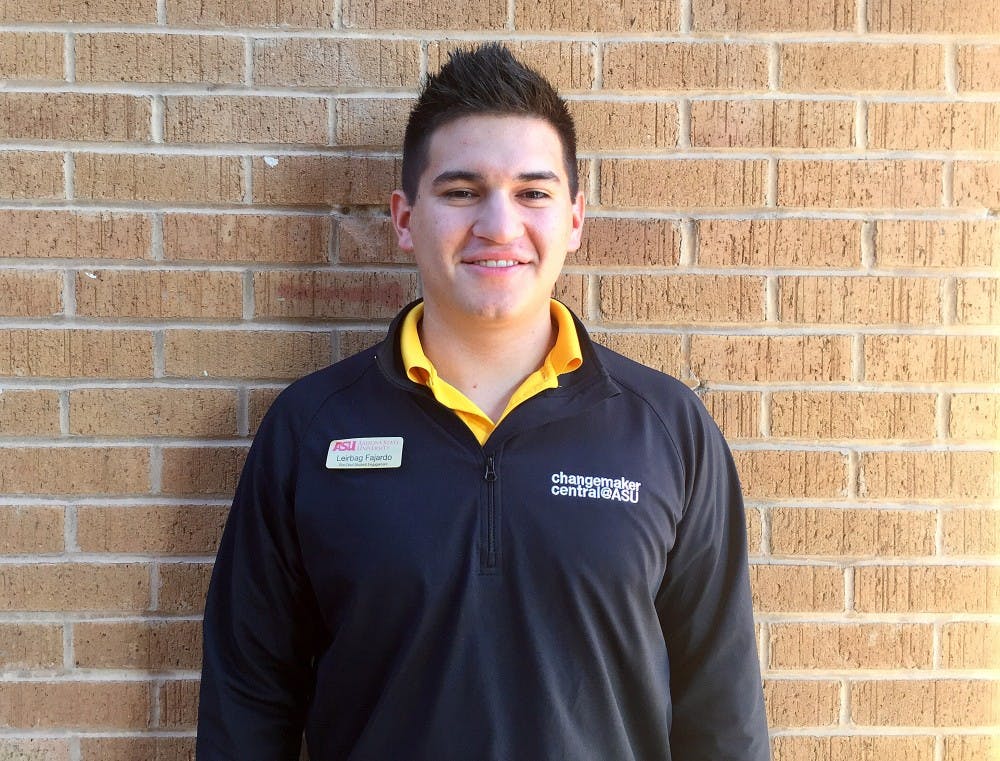The ASU Global Resolve Club works to improve the lives of the underprivileged by creating sustainable and innovative solutions.
Global Resolve is a program in the Ira A. Fulton Schools of Engineering that began in 2006, after members of the group provided a Ghanaian village with clean water. Global Resolve has now worked on a variety of donation-based projects in 10 countries in Asia, Africa and North and South America.
Software engineering junior and treasurer of Global Resolve, Leirbag Fajardo, recently traveled and worked on two different projects in Peru and Costa Rica.
“My favorite part is just giving back to the community and helping people who need it,” Fajardo said. “It just follows my passion.”
During spring 2016, Fajardo and other members of Global Resolve ventured to Cusco, Peru for 10 days to build a micro-solar system for Azul Wasi Orphanage.
“I really enjoyed the Peru trip because I got to engage with the kids at the orphanage,” Fajardo said. “Having the director tell me stories about them was very impactful and eye opening. We also got to just play soccer games with them and hangout.”
The club works on a variety of humanitarian projects and makes a point of building a relationship with the communities that they travel to, while also making an impact. (source?)
“The cool thing about the club is that no one really knows everything, we have all different types of students and majors,” Fajardo said. “If your passion is to just help out people in the community then the club is right for you.”
Last month, Global Resolve traveled to Santa Maria de Dota, Costa Rica to improve and repair biodiesel machines for coffee farmers and promote environmentally friendly green technology with help from Green Communities, an organization that helps protect the cloud forest of Costa Rica from indiscriminate agricultural expansion.
“Costa Rica has some of the best coffee in the world, and they want to mass produce it, leading to them destroying forests,” Fajardo said. “With biodiesel machines, they can create coffee faster and they can use that fuel for the trucks that transport coffee. ... we are helping them reach their goal of becoming the ‘greenest country in the world.'”
Biodiesel fuel is a renewable, biodegradable resource that is made up of a diverse mix of animal fats, oils and foods that helps improve the environment.
Graduate student in the Master of Sustainability Leadership program, Jason Zeikowitz, said that biodiesel fuel produces less air pollutants than petroleum based diesel.
“Biodiesel fuel can be used as a temporary solution, as long as it’s using foods, animal fats or oils that would have otherwise been wasted,” Zeikowitz said. “It can be a short-term solution that many nations have in their plans to change to renewable energies.”
Zeikowitz has seen first hand how sustainability affects the world and decided to pursue a career in sustainability after returning home from China where he taught English as a foreign language.
"That experience really opened me up to seeing the future and how future development needs to be more aware of sustainability," Zeikowitz said.
Andres Vallejo, manufacturing engineering graduate and vice president of Global Resolve, has been a part of the club for two and a half years and also worked on the Peru and Costa Rica projects.
Vallejo joined Global Resolve because he had the desire to travel and wanted to gain volunteer experience.
"The club quickly became more than just travel and volunteer work," Vallejo said. "You really get attached to all the communities you help."
For Vallejo. Peru and Costa Rica were both very positive experiences.
A big difference between the two trips was that Global Resolve already had connections in Costa Rica which helped the students with transportation, housing and other housekeeping things, while Peru was a new experience for many of the students.
Costa Rica is progressing to become more sustainable, and with help from Global Resolve, they can become a model for future generations to follow. Global Resolve plans to return to Costa Rica next year and is currently trying to plan another trip to Peru to see what other types of projects they can help with.
“We would still like to build on top of our projects and continue to create long lasting relationships with these communities,” Vallejo said.
Reach the reporter at kor.kaitlyn@gmail.com or follow @kaitlyn_kor on Twitter.
Like The State Press on Facebook and follow @statepress on Twitter.




